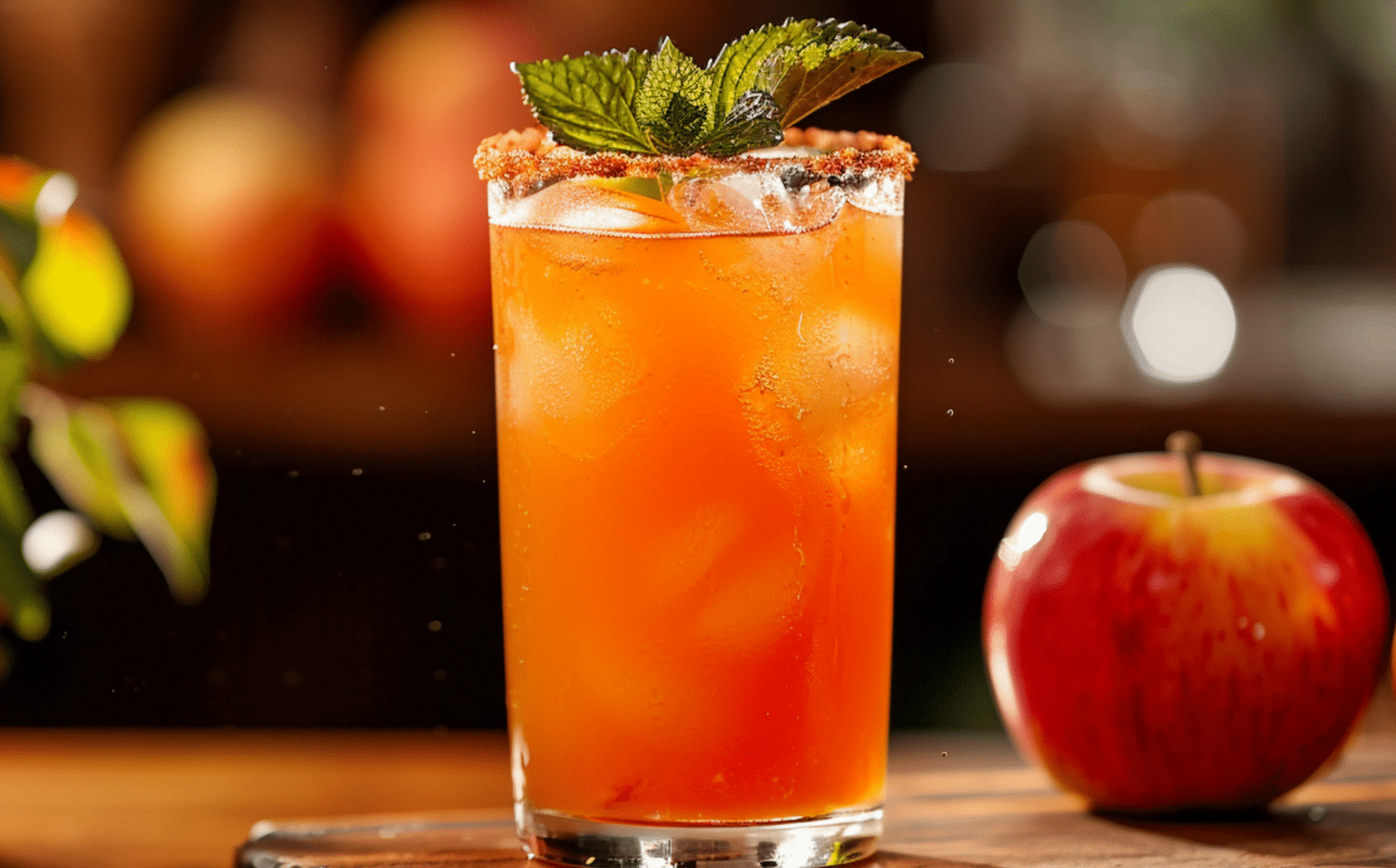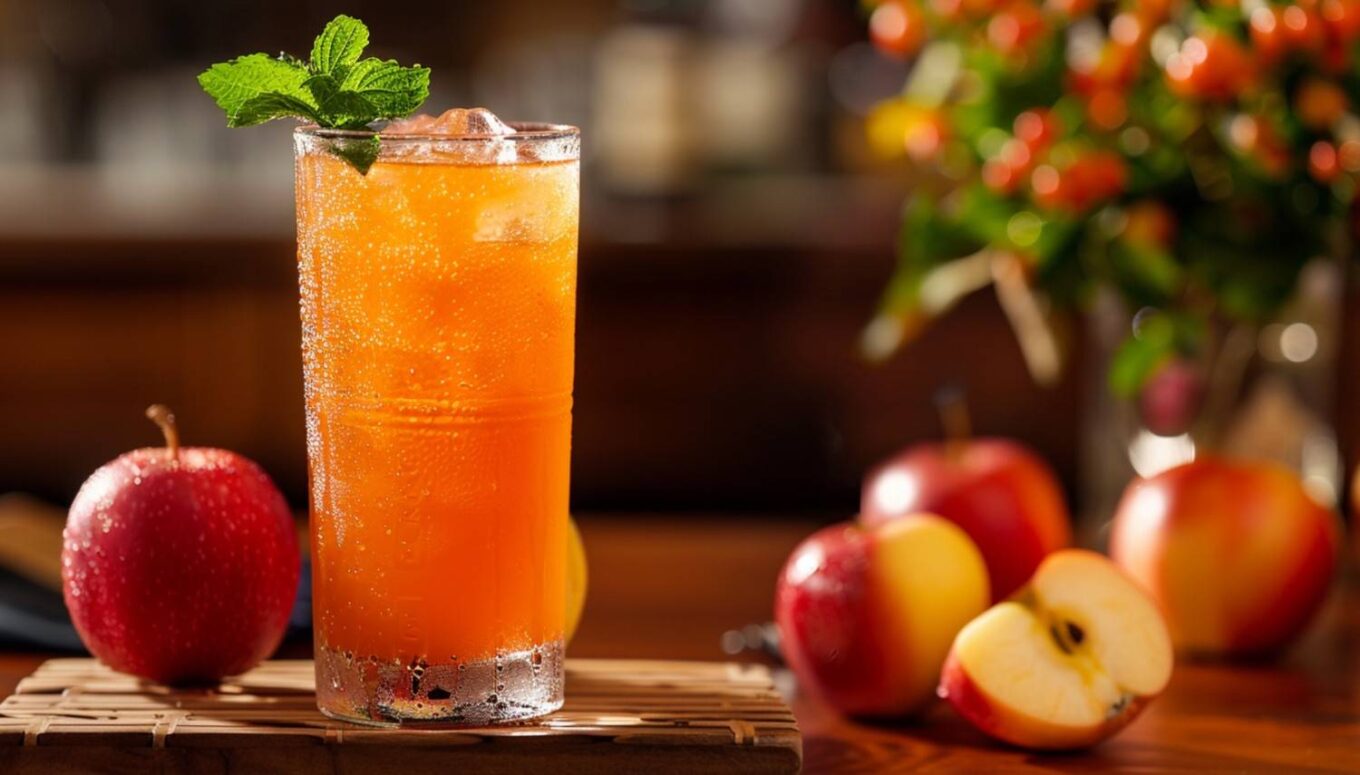Does drinking apple juice make you poop more frequently? You’re not alone if you’ve noticed a connection between consuming this sweet beverage and your bathroom habits.
Many people find that apple juice has a laxative effect. The good news is that there’s a scientific explanation behind this phenomenon.
In this article, we’ll explore why apple juice may stimulate bowel movements and what you need to know to manage its effects on your digestive system.
Whether you’re looking for a natural way to relieve occasional constipation or simply curious about the link between apple juice and pooping, understanding the mechanisms at play can help you make informed decisions about your diet and maintain a healthy gut.
Key Nutritional Components in Apple Juice
1. Water
Water is a vital element in apple juice, crucial in maintaining hydration and keeping the digestive system running smoothly.
Adequate water intake helps soften stool, making it easier to pass and reducing the risk of constipation.
2. Pectin
Apple juice also contains pectin, a soluble fiber that supports digestion by aiding in stool formation and promoting regular bowel movements.
Although juice has less fiber compared to whole apples, the pectin present still offers digestive benefits.
3. Sorbitol
Sorbitol, a sugar alcohol naturally found in apples, is a natural laxative. It attracts water into the colon, softens stool, and stimulates bowel movements.
This effect can be particularly helpful for those dealing with occasional constipation.
4. Fructose
Fructose, the natural sugar in apple juice, can also increase bowel movement frequency.
However, it’s important to note that some people may not fully absorb fructose, which can lead to digestive discomfort or diarrhea in certain individuals.
5. Vitamin C
Vitamin C in apple juice enhances gut motility. Like sorbitol, vitamin C helps draw water into the colon, contributing to softer stools and promoting regularity in the digestive tract.
Recommended Intake of Apple Juice

When using apple juice to help relieve constipation, it’s best to start with a moderate amount and adjust based on your body’s response.
A general guideline for adults is to consume one to two glasses of apple juice daily, each containing approximately 4-8 ounces.
This is a starting point, but individual tolerance and dietary needs may vary. To prevent adverse reactions, it’s essential to introduce apple juice slowly and allow the body time to adjust.
If the initial amount doesn’t affect your bowel movements, you can slightly increase your intake.
However, be cautious not to overdo it, as consuming too much apple juice can lead to diarrhea or other gastrointestinal issues due to the high levels of fructose and sorbitol.
Children and individuals with sensitive digestive systems should start with a smaller dose, around 2-4 ounces, and closely monitor the effects before gradually increasing if needed.
Tips to Maximize Apple Juice’s Nutritional Value
1. Select Good Quality Apples
When making apple juice at home, it is important to choose the right apples. Opt for fresh, organic apples to avoid pesticides and additives that may be present in conventionally grown produce.
Varieties like Fuji, Gala, or Honeycrisp are known for their excellent juice quality and flavor, offering a perfect balance of sweetness and acidity.
2. Washing Thoroughly Before Cutting and Juicing
Thoroughly wash the apples to remove any residues or contaminants. Cut the apples into sizes that fit your juicer, removing the core but keeping the skin on, as it contains valuable nutrients.
3. Juicer vs. Blender
A juicer is ideal for extracting apple juice, as it preserves more natural enzymes and vitamins than blending.
However, if you prefer using a blender, you can retain more fiber from the pulp. After blending, you can strain the pulp or consume it for added fiber benefits.
4. Add Other Fruits/ Vegetables
Consider adding other fruits or vegetables to enhance the nutritional value of your apple juice.
Carrots or beets can increase the content of vitamins and antioxidants, while a touch of ginger or lemon can improve flavor and provide digestive benefits.
5. Don’t Store Apple Juice for Too Long
Once you’ve made your fresh juice, store it immediately in an airtight container in the refrigerator. Consume it within 24 hours to enjoy its maximum nutritional benefits.
Remember that apple juice can oxidize quickly, losing nutritional value and changing flavor. Drink the juice right after preparation to preserve color and nutrients, or add a few drops of lemon juice.
Excessive Consumption of Apple Juice: Possible Side Effects
While apple juice can be beneficial for relieving constipation, moderation is crucial. Excessive intake can lead to various digestive problems.
Apple juice’s high levels of fructose and sorbitol can cause gastrointestinal symptoms such as bloating, gas, and diarrhea.
These sugar alcohols can draw excessive water into the gut, which speeds up bowel movements and can result in discomfort.
Moreover, overconsumption of apple juice can negatively impact gut health by disrupting the balance of the gut microbiota.
The large amounts of simple sugars in apple juice can feed certain types of bacteria, potentially leading to dysbiosis.
This condition occurs when the delicate balance of gut bacteria is disturbed, which can have far-reaching effects on overall digestive health and well-being.
Comparative Analysis: Apple Juice vs. Other Juices
Here is a comparative table to understand the effect of different fruit juices on digestion.
| Juice Type | Fiber Content | Laxative Properties | Effectiveness for Constipation | Recommended Use |
|---|---|---|---|---|
| Apple Juice | Low; contains pectin (soluble fiber) but less than whole apples. | It contains sorbitol and fructose, which help retain water in the colon, softening stools. | Moderate; effective for mild constipation and daily maintenance. | It is good for mild symptoms and daily hydration but less effective for severe constipation. |
| Prune Juice | High: includes more fiber and higher sorbitol levels than other juices. | High sorbitol content plus phenolic compounds aid in stool softening and increasing frequency. | Highly effective; considered one of the best natural remedies for severe constipation. | It is best for severe constipation due to its potent laxative effect and fiber content. |
| Pear Juice | Moderate; less fiber than whole pears but contains fructose and sorbitol. | It contains sorbitol, similar to apple juice, but is typically milder than prune juice. | Mild to moderate; effective for mild constipation, especially for those who prefer a gentler juice. | It suits those who need a mild laxative effect and prefer a lighter taste. |
Conclusion
In conclusion, understanding the connection between apple juice and bowel movements can help you make informed decisions about your diet and digestive health.
Knowing the key nutritional components in apple juice, such as water, pectin, sorbitol, fructose, and vitamin C, can help you better manage its effects on your body.
When using apple juice to relieve constipation, remember to start with a moderate amount and adjust based on your tolerance.
Preparing your apple juice at home using fresh, organic apples and the right techniques can maximize its nutritional benefits.
However, be mindful of the potential side effects of excessive consumption, which can lead to digestive issues and disrupt gut health.
By incorporating apple juice wisely into your diet, you can enjoy its taste and potential benefits for your digestive system.




